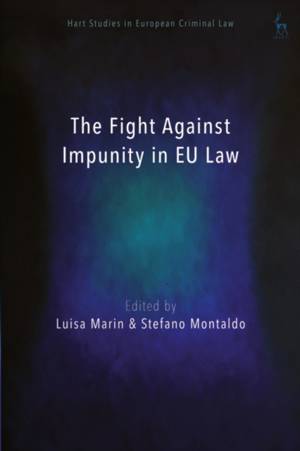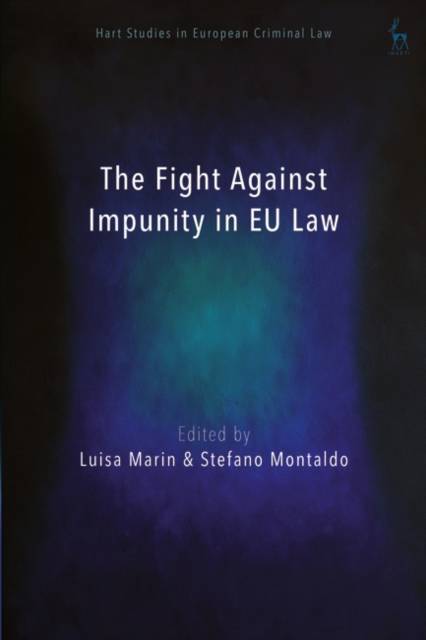
Bedankt voor het vertrouwen het afgelopen jaar! Om jou te bedanken bieden we GRATIS verzending (in België) aan op alles gedurende de hele maand januari.
- Afhalen na 1 uur in een winkel met voorraad
- In januari gratis thuislevering in België
- Ruim aanbod met 7 miljoen producten
Bedankt voor het vertrouwen het afgelopen jaar! Om jou te bedanken bieden we GRATIS verzending (in België) aan op alles gedurende de hele maand januari.
- Afhalen na 1 uur in een winkel met voorraad
- In januari gratis thuislevering in België
- Ruim aanbod met 7 miljoen producten
Zoeken
The Fight Against Impunity in EU Law
€ 228,95
+ 457 punten
Omschrijving
The fight against impunity is an increasingly central concept in EU law-making and adjudication. What is the meaning and the scope of impunity as a legal concept in the EU legal order? How does the fight against impunity influence policy and adjudication?
This timely first piece of comprehensive research aims to to address these largely unexplored questions, which involve structural institutional and substantive dilemmas underpinning the most recent developments of the European integration process. In recent years, the fight against impunity has become a pressing concern for the European institutions. It has shaped several EU policies and has led to a recurring argument in the case law of the Court of Justice.
The book sheds light on this elusive notion, providing a much needed conceptual appraisal. The first section examines the scope of the notion of impunity, and its role in the EU decision-making process and in the development of EU competences. Subsequent sections discuss the implications of impunity - and of the fight against it - in a variety of complementary domains, namely the allocation of criminal jurisdiction, mutual recognition instruments, the rise of new surveillance technologies and the external dimension of the Area of Freedom, Security and Justice.
This book is an original and timely contribution to scholarship, which is of interest to academics, researchers and policy-makers alike.
This timely first piece of comprehensive research aims to to address these largely unexplored questions, which involve structural institutional and substantive dilemmas underpinning the most recent developments of the European integration process. In recent years, the fight against impunity has become a pressing concern for the European institutions. It has shaped several EU policies and has led to a recurring argument in the case law of the Court of Justice.
The book sheds light on this elusive notion, providing a much needed conceptual appraisal. The first section examines the scope of the notion of impunity, and its role in the EU decision-making process and in the development of EU competences. Subsequent sections discuss the implications of impunity - and of the fight against it - in a variety of complementary domains, namely the allocation of criminal jurisdiction, mutual recognition instruments, the rise of new surveillance technologies and the external dimension of the Area of Freedom, Security and Justice.
This book is an original and timely contribution to scholarship, which is of interest to academics, researchers and policy-makers alike.
Specificaties
Betrokkenen
- Uitgeverij:
Inhoud
- Aantal bladzijden:
- 392
- Taal:
- Engels
- Reeks:
Eigenschappen
- Productcode (EAN):
- 9781509926879
- Verschijningsdatum:
- 26/11/2020
- Uitvoering:
- Hardcover
- Formaat:
- Genaaid
- Afmetingen:
- 156 mm x 234 mm
- Gewicht:
- 716 g

Alleen bij Standaard Boekhandel
+ 457 punten op je klantenkaart van Standaard Boekhandel
Beoordelingen
We publiceren alleen reviews die voldoen aan de voorwaarden voor reviews. Bekijk onze voorwaarden voor reviews.








